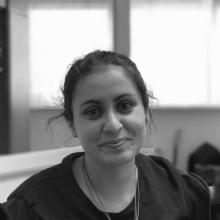Possession and Location: Microvariation in African Varieties of Portuguese (PALMA)

Project Summary:
The central idea of this project is to analyze how language contact, L2 acquisition, and nativization of Portuguese contribute to variation and lead to the emergence and crystallization of linguistic features. In order to achieve this objective, we focus on the spoken contemporary urban varieties of Portuguese in Angola, Mozambique, and S. Tomé and Príncipe, which i) are at different stages of the nativization process and ii) are (historically) in contact with different languages and linguistic typologies.
Our case study will describe and analyze constructions in the domain of possession and location involving the argument structure of intransitive, monotransitive and ditransitive verbs that select Goals, Locatives, and Recipients. The available descriptions show that the expression of these semantic roles exhibits significant variation across varieties of Portuguese. In the case of the African varieties of Portuguese (AVPs), this variation is rooted in the specific sociohistorical conditions that have led to an ongoing nativization process in a context of historical language contact with Bantu and Creole languages.
Previous work on AVPs, which emerge as a research object in the 1980s, has documented broad tendencies of language change and variation in subdomains of possession and location (e.g. datives). However, these studies generally fall short of fine-grained descriptions and analyses, do not relate interdependent constructions, and do not systematically compare across AVPs and the languages they are in contact with.
To overcome these shortcomings, we aim to collect, transcribe, annotate and elicit contemporary spoken urban data to build new, comparable, linguistic corpora with detailed sociolinguistic information that allow us to systematically describe, quantify, analyze, and compare the syntactic and semantic properties of the constructions at hand across AVPs. We will also extensively investigate the relevant properties of the languages the AVPs are in contact with. This comparative approach will shed new light on the central research questions of this project.
- i) What drives the observed patterns of microvariation across and within nativizing AVPs in the domains of possession and location?
- ii) How can we tease apart contact-induced features from change related to general properties of grammar in contexts of nativization?
The project is expected to make a very substantial and innovative contribution to the research on AVPs by setting a new standard which can be applied to the study of other domains of grammar, as well as by contributing to the debate on postcolonial varieties in education and language planning.
Contact: t.hagemeijer@letras.ulisboa.pt









